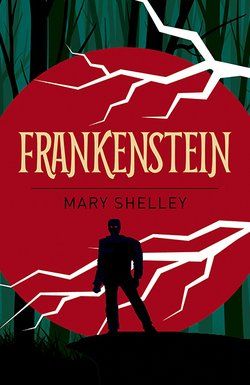When Frankenstein is mentioned in conversation or popular media, it conjures up an image of a grotesque and massive being. He’s a patchwork of green, decaying appendages with large bolts sticking out of his broad neck. He can do little but groan incoherently and walk menacingly, and he resides in a large gothic castle above a dead land and terrified villagers. However, this is really nothing like Mary Shelley’s original depiction of Frankenstein’s monster, and the modern conception of Frankenstein often confuses Dr. Frankenstein with his monster. Going into this book I was aware that what I’d read and watched involving Frankenstein’s monster was probably wrong, but I was really surprised at how little it resembles the original story.
Some of the differences were rather large. Frankenstein Castle is a real place where allegedly an alchemist once lived and ran experiments. However, Dr. Frankenstein never lives in a castle, and instead creates Frankenstein in his college apartment. Frankenstein is described as monstrously large and grotesque, but he is never described as having green skin, being stitched together, or having bolts in his neck. To modern depictions credit, his physical appearance is described very little, so the creative liberties that have been taken aren’t excessive. In addition, he is speaks eloquently and prefers to talk rather than to horrify with violence. Overall, Dr. Frankenstein and his monster’s narrative arc is very different than what I expected, and while some plot twists were telegraphed in advance, it was a fully novel read for me.
The story of Frankenstein is told as a Russian doll of nested stories. The entire story is related in the letters of a Captain Walton to his sister, who writes about his meeting with Dr. Frankenstein and the story Dr. Frankenstein tells. Dr. Frankenstein relates to Walton not only his own tale but the first person tale of the monster he creates, and the monster tells Frankenstein the life story of a poor family that he encounters. It’s well written enough that it is never confusing to follow the characters as you dive deeper into the story, but at times it can be rather frustrating. The characters are all brooding about the misery of existence and unfairness of life, and often their woes are self-inflicted or karmic backlash for wrongs done to others.
Despite several parts I really didn’t enjoy reading, retrospectively there is a lot that is left for the reader to think about. Thematically the book discusses societal injustice on the large scale, as well as the loneliness and existential grief on the personal level. Many people suffer and die both as a result of the sins of society as well as the deliberate actions of individuals within the story. The characters are all complex in that they are deeply flawed and commit some horrible deeds but none of them are truly evil. It’s easy to sympathize with both the plight of Dr. Frankenstein as well as his monster. The question “Who is really the monster?” is a trope at this point, and I went in with preconceptions about who I thought was the monster, but it is really an open ended question in the end that is up to the reader to decide. To what extent are our actions a product of our environment, others, or ourselves? How responsible are we for the actions of others that we have influence over? How responsible is society for the ills of the individual, and how much agency do we have to change that? On top of that, there is question of how reliable the narrators in the story are. The reader is at one point hearing of a story with 5 degrees of separation to the original events. Whose account can we trust?
I was initially dissatisfied with the way much of the story was written, but in retrospect it was written in a way to encourage the reader to think about the themes present. I still don’t love the story, but it is very thought provoking. If you’re someone who enjoys existential themes I’d recommend it. Furthermore, it was written in 1812 by a woman and has become one of the most influential horror books of all time, so it should be given some extra respect and consideration. If some of the tropes or writing style seem telegraphed or dated, this is probably the book that created them.
--Luke Melander

